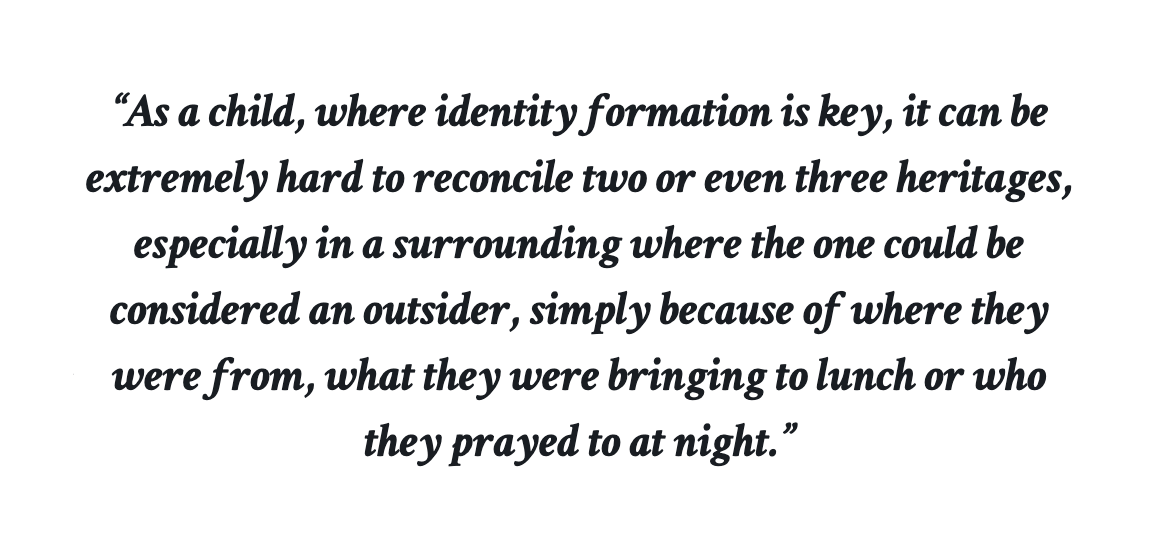Given the accelerating onset of modern societies and norms, it is unsurprising that social theory follows. Anthony Giddens is one of the most prominent voices in support of something that is now more commonly referred to as ‘Individualism’. He argues that through the post-traditional settings, resulting from modernity’s dynamism, an individual can reflect upon their ‘self’ and their identity “without the shackles of tradition and culture, which previously created relatively rigid boundaries to the options for one’s self-understanding”.
While I agree that Individualism should be encouraged for many reasons, I think it is wrong to dismiss the value that culture and traditions can have in defining a person’s identity. I argue that it does not shackle the individual but rather that it allows them to enrich themselves through their heritage, thus effectively reinforcing their Individualism.
However, being confident in your heritage and it’s traditions and consciously integrating them into your core self is something that for many is easier said than done. I write about this due to my personal experience in growing up in a western, individualistic country but being raised with Latin-American collectivist values. As a child, where identity formation is key, it can be extremely hard to reconcile two or even three heritages, especially in a surrounding where the one could be considered an outsider, simply because of where they were from, what they were bringing to lunch or who they prayed to at night. Giddens’ Individualism proposes that by ridding ourselves from all the influences of culture and tradition we can forge ourselves into our true selves.
To me, that sounds like trying to ignore an integral part of who you are and what you stand for. Studies have shown that internalizing heritage and culture autonomously is vital to an individual’s psychological well-being. Meaning that by trying to eliminate culture from your conception of self, you would end up being a less self-fulfilled individual than before.
However, all of this is not to say that individuals should blindly abide to every tradition that a culture encourages, because there are many concepts within cultures that are outdated and inappropriate in modern times. But precisely because we live in modern and, for the most part, egalitarian societies we have the luxury to choose our traditions and to choose those that most suit our individual needs but that also align with the modernist values instilled into all of us by the dynamics of modernity.
This is a variation of Individualism in that individuals now have the power to determine the nature of their identities through conscious choices, where tradition and culture become a choice instead of an obligation. Where the cooperation between heritage, culture and modern values allows individuals to emerge as a hybrid, able to understand the old and the new and able to reconcile both tradition and modernity in a way that allows them to see things in ways others might not be able to.
Thus, I propose a revision of Giddens’ argument by saying that internalizing the cultural norms and values that an individual is connected to help enrich their selves and can help individuals assert themselves in a world where people are encouraged to fit into a mould and to fit a standard. If anything, culture is a tool for self-understanding rather than a boundary.




